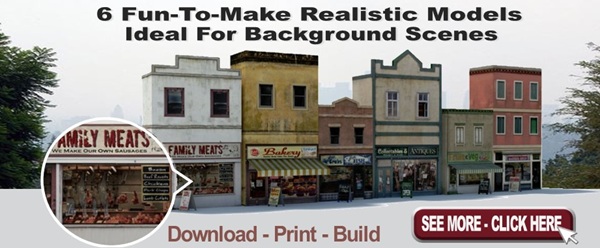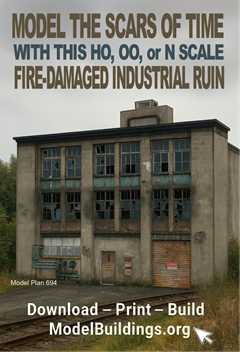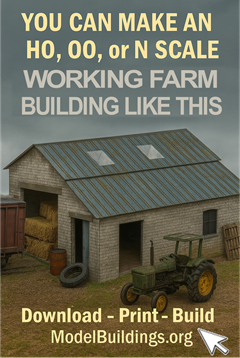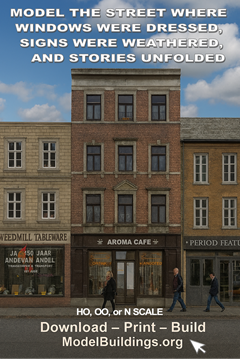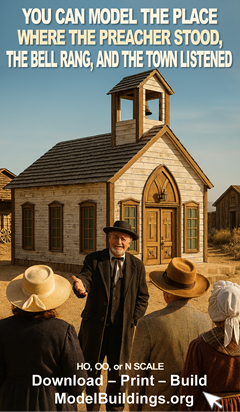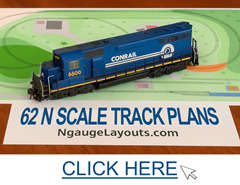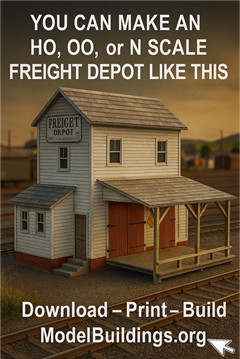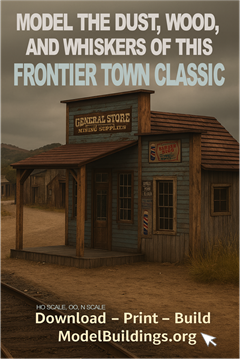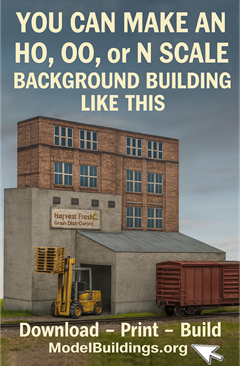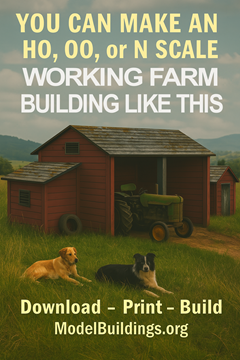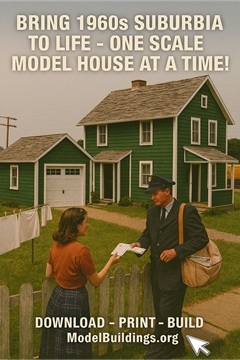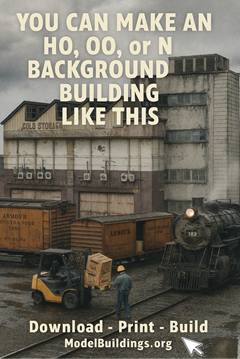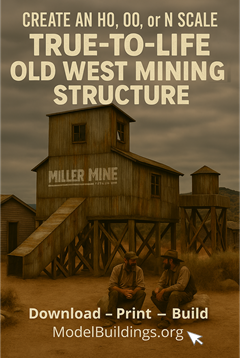Everything on model trains, model railroads, model railways, locomotives, model train layouts, scenery, wiring, DCC and more. Enjoy the world's best hobby... model railroading!
Lights a Problem on Loco
Club member Joel asks readers:
“I have a Bachmann DCC ready engine with new decoder and I can’t get the lights to work. Do you have a suggestion?”
Layouts in a Loft or Attic
 In 2013 The Daily Mail in the UK ran this story “End of the line for model railway fan as housing association demands he dismantle £10,000 train set in attic on health and safety grounds”
In 2013 The Daily Mail in the UK ran this story “End of the line for model railway fan as housing association demands he dismantle £10,000 train set in attic on health and safety grounds”
Retired builder and father-of-three, Robert Burdock (61 at the time), had been into model railroading for 40 years. His model railway which had been in the same location for 15 years had 70ft of track with 63 locos.
Whether Robert Burdock was right or wrong, it does highlight the importance of safety when constructing layouts in roof cavities. Obviously the weight of the finished project including benchwork, scenic features, rolling stock, structures, electrics, accessories etc. as well as the weight of the engineer and any visitors all needs to be taken into consideration.
Results of a recent poll I ran showed that 5% of layouts were to be located in roofs/attics/lofts. When space is limited in the family home, model railroaders of try and think outside the square when locating layouts. A lot of people decide that a loft is a great ‘out of the way’ place to set up a model train set.
Ye s, a loft can be a good solution, but be careful and do your homework first. Unless the loft has been properly converted there is a danger that you may overload the ceiling joists (resulting in cracked ceilings in the room below). There could also be the possibility of overloading the entire roof trusses resulting in a collapse… far worse scenario. Always seek professional advice, because some roofs cannot be modified safely to accommodate a load bearing down from “inside” the roof. If in doubt consult an engineer before locating your train set in a loft.
s, a loft can be a good solution, but be careful and do your homework first. Unless the loft has been properly converted there is a danger that you may overload the ceiling joists (resulting in cracked ceilings in the room below). There could also be the possibility of overloading the entire roof trusses resulting in a collapse… far worse scenario. Always seek professional advice, because some roofs cannot be modified safely to accommodate a load bearing down from “inside” the roof. If in doubt consult an engineer before locating your train set in a loft.
Randall, a reader to this blog also sent in this advice:
1. Consult a structural engineer, not an architect. The architect is about use of space and how humans and buildings interact, but knows very little about structural loads.
2. If you use a loft or “attic”, make sure it’s inside the insulated envelope of the home. If it isn’t, two things can happen:
A. In the summer it can get hot enough to deform plastic parts (shells, couplers, track ties, etc.)
B. In the winter it can get cold. The problem isn’t the cold itself, but what happens when the warm air of spring (or that comes through the trap door) comes up against cold materials: condensation. The water will condense wherever the warmer air can get to, not just on the outside of the model or box. This can happen in unheated garages, as well.
Hythe Pier Railway Hampshire UK
“Has anyone completed a model of the historic pier train from Hythe in Hampshire? We are hoping to put together an exhibition to celebrate the engines manufacture in 1917 and would like to borrow a model if possible. Alternatively does anyone have any suggestions as to which kits could be used to form the basis of creating such a static model? Any advice would be much appreciated.”
What Do You Like Most About The Hobby?
 We’re all in this hobby because we enjoy it, but each of us probably enjoys different aspects of the hobby more than others. With that in mind, I thought it would be interesting to get some feedback on what it is that readers most enjoy about model railroading. It will be interesting to see where the common ground is.
We’re all in this hobby because we enjoy it, but each of us probably enjoys different aspects of the hobby more than others. With that in mind, I thought it would be interesting to get some feedback on what it is that readers most enjoy about model railroading. It will be interesting to see where the common ground is.
Post you thoughts using the COMMENTS link below.
Using Shredded Cloth on Railroad Scenery
John sent in this request hoping a reader might be able to help:
“I was at the Amherst show several years back and there was a lady selling this scenery material. I believe it was made out of shredded cloth but I am not sure about that. All you had do was mix with water and apply.
It was nice material, if you wanted to re-work an area all you had to do was wet again and you could work it. I am hoping somebody is familiar with this product as I can not remember the name, I have tried searching the web for it but no luck.”
Wiring? Boosters? Circuit Breakers?
Aaron models HO scale and asks readers this:
“I am currently building a layout about 5 -6 pieces of plywood (standard size) formed in a horse shoe shape.. with a under ground staging yard to park the locomotives.. my question is how would I wire my system up? How many boosters? What about circuit breakers? Etc”
Search Railroading Words – New Word Search Puzzle
The feedback from the crossword puzzle on the blog a couple of weeks ago has been very encouraging with many requests for more puzzles. Here’s our first Word Search puzzle with some words that model railroaders might use.
If you would like to download the puzzle and print it out you can do so HERE. There is also a link to view or print out the solutions on the same web page.
AIR BRUSH, CAB, DECODER, FREIGHTYARD, JUNCTION, SCALE, SNAP SAW, TANK DOME
AMMETER, CONSOLIDATION, FLEXTRACK, FROG, MARKER, SCHEDULE, STYRENE, TRACTION
BALLAST, CROSSING, FLYWHEEL, HOMASOTE, REEFER, SLIDE, SUBROADBED, TRANSFORMER
BENCHWORK, CROWS NEST, FOREMAN, INTERCHANGE, ROADBED, FENCE, TAMPER
Print out puzzle and answers at http://www.modelbuildings.org/Puzzle-4-word-search.html
If you would like to see more puzzles like this on the blog, please let me know by commenting under this post.
Fixing Track Turnout Problems
Marshall models N scale and asks readers:
“I have laid ATLAS TURNOUTS and a lot of my rolling stock jump track when they get to the actual switch housing, so I changed to PECO. Now, my problem is that the power switch extension arm is too far away. Q) How do I make the extension rod longer?”
Tender for Lionel M1a 4 8 2 Steam Loco
Tom models O gauge and asks readers:
“I picked up a Lionel Pennsylvania M1a mountain 4-8-2 steam loco at an estate sale last year. It seems to work fine. The problem is it did not come with a tender. I thought no big deal I’ll get one from Lionel. Well they don’t have any. It was made in 2003. I’ve called all kinds of places with no luck. Does anyone know where I can get the correct tetherless tender for it? The tender has all the sound system in it.Hope someone can help!”
Planning a Small HO layout – Help!
Delford sent in this question to readers:
“I am trying to plan a layout and was planning to start with a 4×8. I would like a few tracks and a tunnel and bridge and some turn outs. I have a NCE controller so want to go DCC. Would anyone give me some ideas? I know there are many experts out there.”
Delford… the same advice I’d give to anyone in the hobby, is to learn as much as you can… and never stop learning. There are plenty of excellent resources available including several featured on this blog including the Beginners Blueprint and this one on DCC http://www.dccmodeltrains.org.
War Time Scene at the Shoeburyness Model Railway Show
Dennis sent in these photos to share captured at the Shoeburyness Model Railway Show at Essex in the United Kingdom.
Foundation Material for Model Railroad Layout
John asks readers:
“I am seeking Pros & Cons of using solid 2″ insulation for my N scale layout base please?”
Loco Stopping Erratically
Paul K asks readers:
“My 8 year old Bachmann engine HO goes ok but then stops or stalls. It’s doing my head in because it doesn’t stop in the same spot so its not the track. It will do a couple of circuits then plays up. Not sure what to do.”
How Wide Should I Make The Station Platform Clearance?
Larry has an HO layout and asks readers:
“I have just made a passenger train station (got the plans from this site) and I’m really happy with it. My question relates to positioning the train platform close enough to look authentic (I don’t want my passengers leaping across a gap to safely board the train), but far enough away so the cars don’t hit the platform. What is the correct clearance?”
Sileby Model Railway Exhibition Photos
Sam H sent in these photos to share from the Sileby Model Railway Exhibition in the UK (between Loughborough and Leicester).

Submit A Question Or Answer A Question
If you have a question to ask others in the hobby, or if you want to answer or comment on a question, or if you want to publish a photo/description of your layout… then this is the place to do it. The Model Train Help Blog is read by around 10,000 railroaders each week.
 To Ask a Question simply use the “Ask a Question” link found under any posting. There is also a link to “Submit Your Question” in the right hand column.
To Ask a Question simply use the “Ask a Question” link found under any posting. There is also a link to “Submit Your Question” in the right hand column.
To answer a question click on the title of the posting and you’ll be redirected to a page where you can add your comment or answer. Or, you can simply click the COMMENTS link under any posting. By doing that you can see what others have to say.
To add a photo/description of your layout, or add a tip for others, use the “Submit Your Article” link in the right hand column.
PLEASE NOTE: All questions and comments get submitted to the Blog Moderator for approval prior to publication. Please spell check and proof read what you write before submission, as only the best comments, questions and answers will be published. We get a lot of questions and comments that don’t make sense so aren’t published. Poorly thought-through questions lacking in specific details run the risk of not being published or answered.
Solving DCC Programming Problems
Barry poses this question for readers:
“I am having an issue with trying to program HO locos on my DCC system. I am using a Hornby ‘Select’ controller. I understand that cleaning of track and locomotive wheels is very important to ensure a signal can get through to control unit. I have cleaned the track with a cleaning rubber block and wiped the wheels using a cotton bud with a medical alcohol base. What else should I be checking, cleaning or other actions to the message through?”
What’s Best – DC or DCC?
John asks readers about DC or DCC:
“I think I posted a while back. I am getting into model railroading (My age 60 plus years) after being out from my childhood. I have bought some DCC on board locomotives on EBay. I get mixed opinions from the only hobby shop in this area. Some say go with DC only as it is much simpler, others say go with DCC. Need opinions since I am getting back into this hobby. Am looking at setting up a 4ft x 8ft with 3 different locomotives. Thanks for any input/advice.
